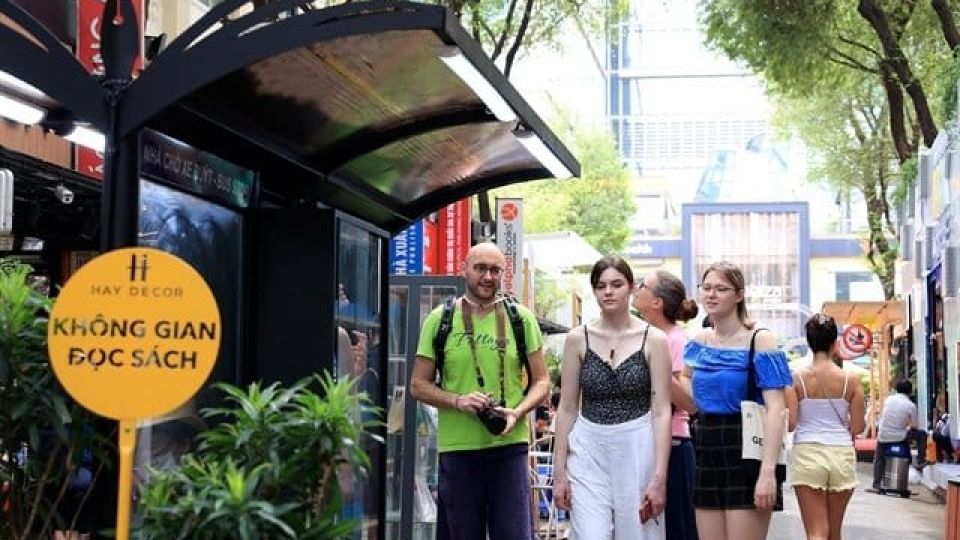May 19, 2023
HANOI — The Government emphasised that the extension of e-visa validity to 90 days, three times longer than the current 30 days, will be an open-door policy in attracting more foreigners to visit Việt Nam as well as seek investment and business opportunities, creating a driving force to promote the country’s socio-economic development.
The Government has recently reported to the National Assembly regarding the clarification of the National Assembly Standing Committee’s opinions on the amended Law on Foreigners’ Entry into, Exit from, Transit Through, and Residence in Việt Nam.
Previously, the National Assembly asked the Government to provide more specific arguments for the proposal to extend the validity of e-visas from 30 days to 90 days and the proposal to extend the duration of temporary residence permits at the border gates for visa-exempt unilateral entry visitors from 15 days to 45 days.
The Government stated that since the implementation of the e-visa pilot phase in 2017, the number of foreigners requesting e-visas has been increasing. However, due to the current short duration of 30 days for e-visas, it has not attracted more foreigners as expected.
In particular, foreigners who wish to have a longer stay for vacation, market research or investment opportunities in Việt Nam need relatively longer durations.
Therefore, the Government has proposed to extend the validity of e-visas to three months, valid for single or multiple entries, to meet the long-term vacation needs of international tourists.
The new policy will provide favourable conditions for foreigners who want to conduct research, market surveys, and promote investment opportunities in Việt Nam, especially for those who need to visit multiple countries in the region and return to Việt Nam to evaluate and compare investment and business opportunities.
Extending the e-visa validity to three months is suitable for foreigners responsible for establishing commercial presence, service providers, and contract suppliers as committed to by Việt Nam in free trade agreements.
According to the Government, the issuance of e-visas for these cases is carried out through pre-approval of personnel. Therefore, compared to unilateral visa exemptions, this policy helps immigration authorities screen individuals who do not meet entry requirements or the requirements of management work.
Regarding the extension of the duration of temporary residence permits at the border gates for visa-exempt unilateral entry visitors from 15 days to 45 days, the Government states that through studies on travel trends, tourists from distant markets such as Europe often have vacations lasting more than 15 days or choose resort and cross-country tour programmes.
Currently, the tourism industry is focused on attracting beach vacationers and tourists with long-term stays to gradually compete with other countries in the region. Countries like Thailand and Singapore are implementing visa exemption policies with temporary residence permits of up to 45 days or 90 days.
Therefore, extending the unilateral visa exemption period to 45 days brings Việt Nam to the average level in the region and enhances the country’s competitiveness. It also provides even greater convenience for international tourists, helping them have more control over their time for long-term sightseeing and vacations in Việt Nam.
The report also provides further clarification on previous proposals regarding the submission of applications, reporting lost passports, and requesting passport restoration through electronic platforms. It suggests considering regulations on invalidating passports that have been unused for over 12 months but not collected, and encourages the use of electronic platforms for temporary residence declarations. — VNS


